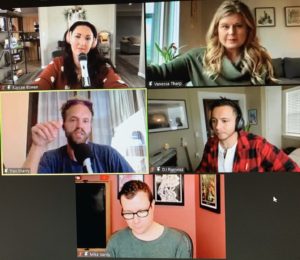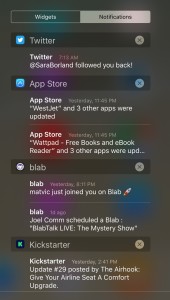In my world, community is everything. For more than ten years, I’ve been helping people create online communities. The people we surround ourselves with influence our thoughts, inspire our actions, and bolster our resolve. They also help us up when we fall and cheer loudest when we succeed. Done well, community is a glorious thing.
Recently, I experienced The BIG Ready, as speaker and attendee. I left the day feeling both tired (Zoom is exhausting!) and inspired.
With synergy, a global roster of speakers, panelists, and workshop leaders came together. Hosted by my friends, Mike Vardy and Vanessa Tharp, this crew shared their outstanding productivity-related research. Several themes caught my attention and I’m going to share them with my readers in a series of posts over the next few weeks. This first post in the series, however, is about community.
Better Together
The BIG Ready Panelist DJ Ramirez noted, “As humans, we’re better together. We’re better as a team.” I couldn’t agree more. While many of us work from home these days and, mostly, on our own, it’s vital to include human connections in each day.
While you may be surrounded by family, a professional community is important, too. Remote workers employed by larger organizations get that sense of community from their colleagues. They might connect through a Slack channel or videoconference on a daily basis. Those working alone — entrepreneurs, artists, writers — have to take action to ensure they connect with other professionals.
Layers of Community
Depending on what you’re trying to accomplish, your work likely has many facets and these need to be reflected in the communities in which you interact. To get the most out of community, you’ll “go to different communities for different things,” Trav Sherry shared. It’s about finding the community pieces that fit into your work life to connect with the people who understand the work you’re doing.
As an example, I connect with marketing colleagues in the Phlywheel community, productivity peeps in the TimeCrafting Trust, and enjoy the perspective of fellow business women in RevolutionHER. I’ve also got less formal pockets of community with smaller groups of people who support and inspire me.
Community Is About People
Mike Vardy observed, “You need to make time for [community]. At the end of your life, you’ll look back and realize it was about the people moments.” Reflect on your own work and think about the people who influenced you along the way. Was there someone who offered sage advice? Or, perhaps, someone who gave you a kick in the pants when you needed it? Or, maybe, someone who offered empathy as you grieved a failure?
Knowing that time is a limited resource, we have to be intentional about the way we use the time we do have to stay connected. Nobody’s got time to waste on drama queens, Negative Nellies, or distracting duds.
Building Community
Once you’ve found your people, it’s time to bring them together. But how do you do that?
First, it’s important to know that “Nobody builds a community alone,” as Vanessa Tharp shared. So true!
Taking time to engage with fellow members amplifies the value of each community in which you choose to participate. As Kaycee Brown commented, “You get out of a community what you put into it.” So, take time to answer questions, participate in challenges and events, and share your work, where appropriate, in the spirit of helping your community connect and grow.
DJ Ramirez commented that the beautiful thing is that “Community is compounding … it’s like a seed … it grows over time.” Much like a garden, the more attention and effort group members spend on a community, the more value everyone enjoys.
Key Takeaway
In life, and in work: Don’t go it alone. To maximize productivity, you need community. Peers support your goals, act as an ongoing resource, and cheer you on when the going gets rough.
In Appreciation
Thanks to The BIG Ready’s panelists Vanessa Tharp, Kaycee Bowen, Trav Sherry, DJ Ramirez, and Mike Vardy for sharing their thoughts and perspectives on the community.
This is the first in a series of posts inspired by The BIG Ready hosted by Mike Vardy and Vanessa Tharp.


